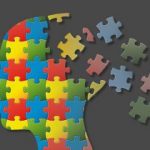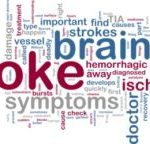 Memory loss is a real concern as you age. Current estimates suggest over five million Americans are living with Alzheimer’s disease, and this number is expected to rise to 16 million by 2050. The majority of patients living with dementia or Alzheimer’s disease are over the age of 65, which means seniors are at the highest risk for memory loss.
Memory loss is a real concern as you age. Current estimates suggest over five million Americans are living with Alzheimer’s disease, and this number is expected to rise to 16 million by 2050. The majority of patients living with dementia or Alzheimer’s disease are over the age of 65, which means seniors are at the highest risk for memory loss.
Although there is no cure for dementia and Alzheimer’s disease, there are things you can do to slow down progression or delay onset. Memories are precious, and you want to hold onto them for as long as you can. The following articles should be quite beneficial for you if you’re worried about your memory.
Top 2017 articles about dementia and memory loss
 Short-term memory loss: Causes and treatments
Short-term memory loss: Causes and treatments
Advertisement
Short-term memory loss is a case of losing memory over a short period of time. In most situations, long-term memory is not impaired. While most people associate short-term memory loss with aging and specifically dementia, there are other causes for amnesia-like symptoms; therefore, treatment is varied.
People who experience short-term memory loss might find that they can still remember how to play their favorite instrument, recall the names of everyone they have met, and what schools they attended, but they may not be able to remember what they were doing five minutes ago. There are cases where it is possible that brain damage has completely destroyed short-term memory. People often say they are “stuck” in a certain time period because they have a hard time forming new memories. Continue reading…
 Most women with fibromyalgia suffer from memory and concentration problems: Study
Most women with fibromyalgia suffer from memory and concentration problems: Study
A Spanish study published in the Journal of Clinical and Experimental Neuropsychology states that most women with fibromyalgia say they have memory problems and can’t concentrate, and the majority also suffer from anxiety and depression.
Fibromyalgia is a chronic pain disorder characterized by widespread musculoskeletal pain and tenderness, fatigue, sleep disturbances, memory, and mood issues. Researchers believe that this condition amplifies painful sensations by affecting the way the brain processes pain signals. The condition tends to affect women more than it does men. Patients commonly have cognitive complaints, but doctors aren’t clear whether this is because of cognitive dysfunction or if clinical depression is the cause. Continue reading…
 10 early signs and symptoms of dementia in men
10 early signs and symptoms of dementia in men
Dementia is a term used to describe significant cognitive impairment. These impairments are often seen in two or more critical brain functions such as memory, language, judgment, and reasoning. Deficiencies in these aspects of cognitive ability can significantly affect a person’s daily functioning, making them require constant aid.
Advertisement
The most common form of dementia is Alzheimer’s disease, but there exist multiple forms of dementia that exhibit a varying degree of symptoms and presentations to help differentiate them from each other. Some of these other forms of dementia include vascular dementia, which may be the result of stroke and vasculitis, and frontal lobe dementia, which is relatively rare and thought to be inherited. Continue reading…
 Understanding silent stroke, a leading cause of vascular dementia
Understanding silent stroke, a leading cause of vascular dementia
Although it may not be a common term, silent stroke is a leading cause of vascular dementia that impacts about one-third of those over the age of 70. A better understanding of silent stroke can help many people reduce the risk of memory problems associated with vascular dementia.
During a typical stroke, a clot blocks a blood vessel that feeds part of the brain. Brain cells then can die, leading to facial weakness, trouble speaking, difficulty walking, or even vision problems. So what is a silent stroke then? Well, when someone has a silent stroke, blood flow is interrupted and cells in an area of the brain that don’t control vital functions get destroyed. This damage can show up on an MRI or CT scan, but is often too small to produce obvious symptoms. Still, a silent stroke can cause cognitive impairment. Continue reading…
